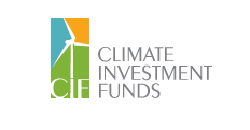The Climate Investment Funds (CIF) endorsed Uganda’s investment plan (IP) to transform its energy sector by building on its renewables resources. The East African country plans to build up its wind, solar, and geothermal industries in an effort to power the entire country through sustainable energy.
The plan, to be implemented under the CIF’s Program for Scaling Up Renewable Energy in Low Income Countries (SREP), will focus on geothermal development, solar PV off-grid rural electrification and-grid net metering, and wind measurement for development of pilot wind power projects. The plan will also promote and support greater private sector engagement in power generation from renewables, help consolidate the sector’s regulatory framework, and promote gender equality and inclusiveness. The IP will be implemented with support from AfDB and other partners including the IFC who will be the advisor for geothermal, and was endorsed with an indicative infusion of $50 million.
Currentnly only around 17% of Uganda’s 35 million citizens have access to electricity. In recognition that energy is the driver of socio-economic development, Uganda designed the IP to build on the country’s policy infrastructure for sustainable energy envisioned in its ‘Vision 2040 for Uganda’, including increasing energy access to an ambitious 80% by 2040. Particularly for remote and isolated areas, where connectivity to the main grid is too expensive, off-grid and mini-grid systems will play an important part in the solution.
“Uganda has made a commitment to this investment plan because we recognize that energy is the engine of our growth. Because we have very low level of energy access, we are urgently addressing that problem as part of our vision for a prosperous Uganda. As our population grows and our citizens increasingly need basic energy, we also need to draw on our natural resources and to engage the private sector to ensure a sustainable energy base throughout our country,” stated M. James BAANABE, Uganda Commissioner from the Directorate of Energy Resources Development & SREP National Focal Point at the Ministry of Energy & Mineral Development. “We are pleased that this plan helps address both by building our renewables sector and engaging the private sector, and welcome today’s endorsement.”
The plan includes a set of three projects to be developed over the coming months, a decentralized renewables development program, a wind resource map and pilot-wind power development project, and an130 MW geothermal development program. Through the launch of these projects Uganda expects to see a minimum direct contribution of 151 MW of installed capacity of renewable technologies (non-hydro) in the country’s energy mix, as well as an increase in the annual energy output of 125.4 GWh per year. In addition with a total investment of at least $455 million in the power sector associated with SREP Uganda should see the development of two nascent generation technologies in the country, geothermal and wind, which should result in a high transformational impact on the power sector among other things.

